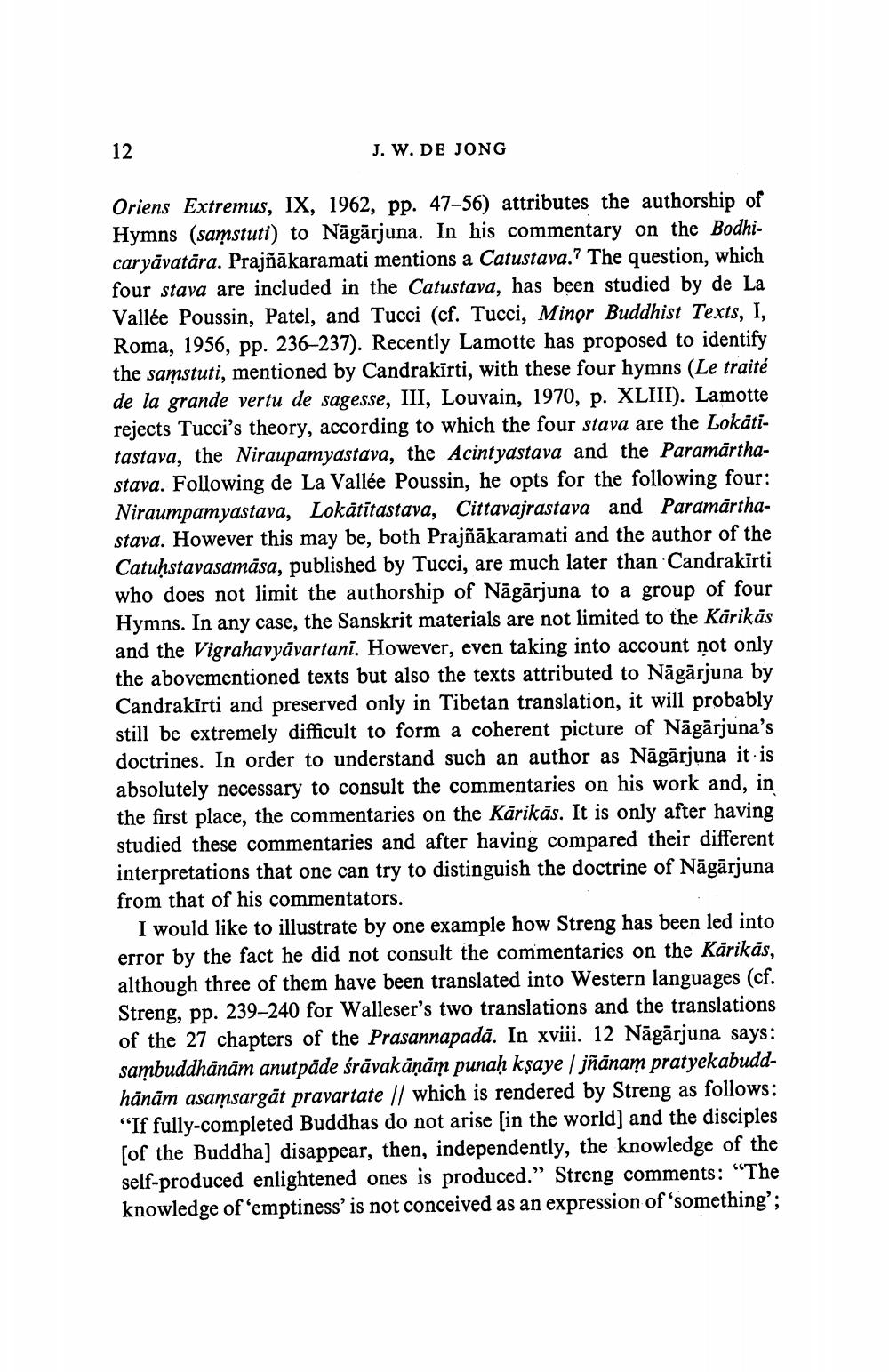Book Title: Emptiness Author(s): J W De Jong Publisher: J W De Jong View full book textPage 6
________________ J. W. DE JONG Oriens Extremus, IX, 1962, pp. 47–56) attributes the authorship of Hymns (samstuti) to Nāgārjuna. In his commentary on the Bodhicaryāvatāra. Prajñākaramati mentions a Catustava.? The question, which four stava are included in the Catustava, has been studied by de La Vallée Poussin, Patel, and Tucci (cf. Tucci, Minor Buddhist Texts, I, Roma, 1956, pp. 236-237). Recently Lamotte has proposed to identify the samstuti, mentioned by Candrakīrti, with these four hymns (Le traité de la grande vertu de sagesse, III, Louvain, 1970, p. XLIII). Lamotte rejects Tucci's theory, according to which the four stava are the Lokatitastava, the Niraupamyastava, the Acintyastava and the Paramarthastava. Following de La Vallée Poussin, he opts for the following four: Niraumpamyastava, Lokātītastava, Cittavajrastava and Paramarthastava. However this may be, both Prajñākaramati and the author of the Catuḥstavasamāsa, published by Tucci, are much later than Candrakirti who does not limit the authorship of Nāgārjuna to a group of four Hymns. In any case, the Sanskrit materials are not limited to the Kārikās and the Vigrahavyāvartani. However, even taking into account not only the abovementioned texts but also the texts attributed to Nāgārjuna by Candrakirti and preserved only in Tibetan translation, it will probably still be extremely difficult to form a coherent picture of Nāgārjuna's doctrines. In order to understand such an author as Nāgārjuna it.is absolutely necessary to consult the commentaries on his work and, in the first place, the commentaries on the Kārikās. It is only after having studied these commentaries and after having compared their different interpretations that one can try to distinguish the doctrine of Nāgārjuna from that of his commentators. I would like to illustrate by one example how Streng has been led into error by the fact he did not consult the commentaries on the Karikas, although three of them have been translated into Western languages (cf. Streng, pp. 239-240 for Walleser's two translations and the translations of the 27 chapters of the Prasannapada. In xviii. 12 Nāgārjuna says: sambuddhānām anutpäde śrāvakāņām punaḥ kṣaye / jñānam pratyekabuddhānām asamsargāt pravartate // which is rendered by Streng as follows: "If fully-completed Buddhas do not arise in the world) and the disciples [of the Buddha) disappear, then, independently, the knowledge of the self-produced enlightened ones is produced.” Streng comments: "The knowledge of 'emptiness' is not conceived as an expression of 'something';Page Navigation
1 ... 4 5 6 7 8 9
